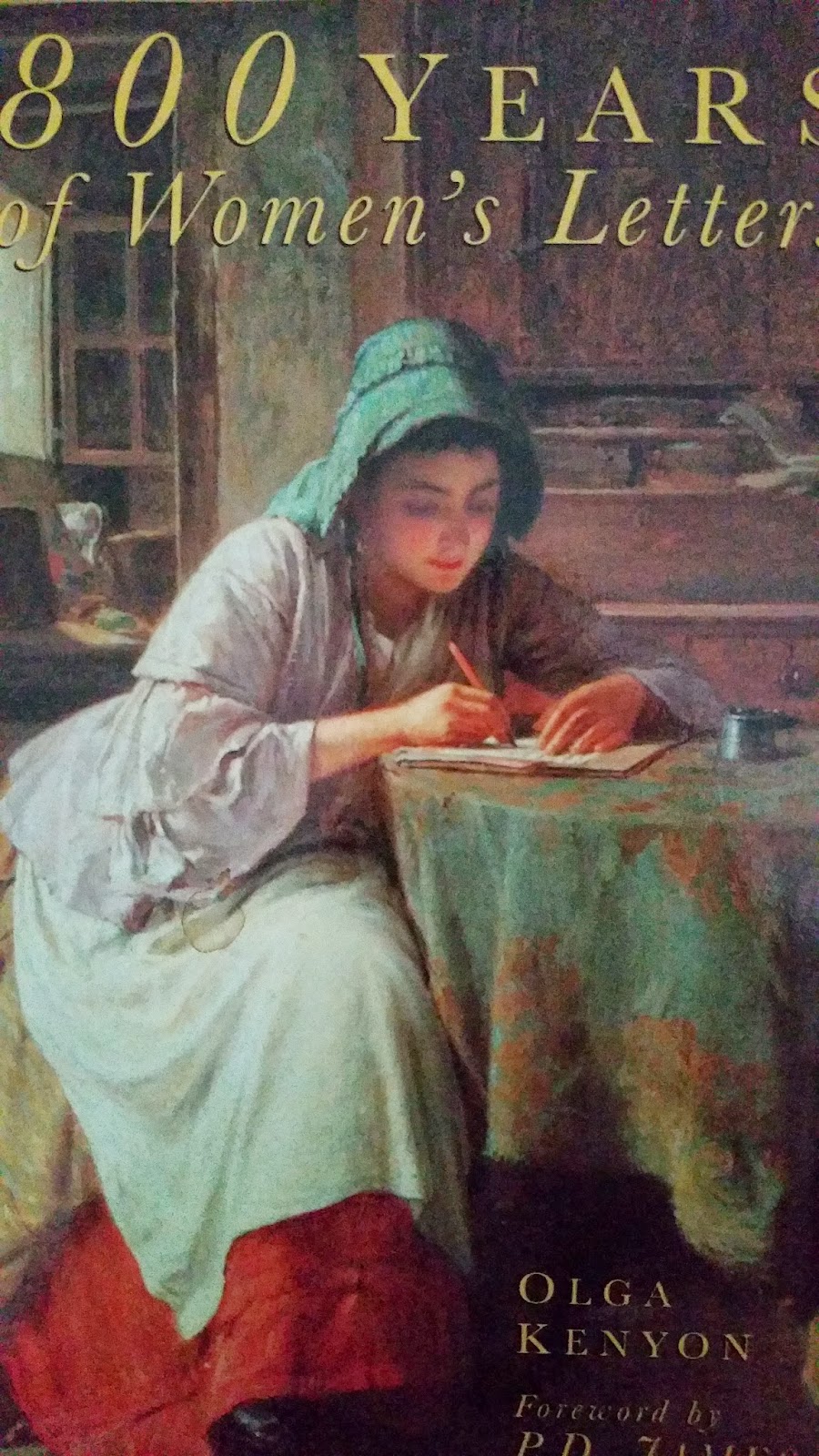'I have made such a nice little purchase today - two little girls of seven years old, rather ugly, and one of them dumb.'
This startling letter was written in 1839 by a Emily Eden, a respected upper class English lady, whilst staying in Calcutta with her brother who was Governor General of India at the time. The content is truly shocking, not but just because it seems barbaric by today's standards, but because as an articulate means of communication, it is a lesson to us all.Whilst doing some research into the lost art of letter-writing recently, I came across my original copy of Olga Kenyon's fascinating book 800 Years of Women's letters which is packed so full of revealing epistles that would be impossible to read in one sitting.
Eden goes on to say : The natives constantly adopt orphans - either distant relations or children that they buy - and generally they make no difference between them and their own children; but these little wretches were very unlucky. Describing their sorry state she adds: they have not a stitch of clothes on and one of them is rather an object, the man has beat them so dreadfully, and she seems stupefied.'
In an illuminating foreword to the book author P.D.James, the prolific crime writer who died at the end of last year, writes: 'No literary form is more revealing, more spontaneous or more individual than a letter.'
In this book you can find letters from Elizabeth 1, Queen Victoria, Vita Sackville-West and Virginia Woolf in correspondence with each other, and Florence Nightingale exclaiming 'There is not an official who would not burn me like Joan of Arc if he could, but they know the War Office cannot turn me out because the country is with me.'
All this leads me to think that letter writing is an art that has been lost altogether by today's generation. Not unlike a short story or piece of prose, the letter of the nineteenth century, for example, was full of imagery, description, consideration, prophecy, indignation, love, pain and a whole host of emotions that we seem to have lost the ability to describe.
I still have copies of the letters I sent to my own grandparents when I was a small child which inevitably started with I hope you are well and went on to describe whatever it was that I had done at home or at school that week. The letters sometimes took hours to perfect, but they were carried to the letterbox with a strong feeling of pride and satisfaction. Was this, then, the beginning of my story telling?
And if people are no longer writing letters, but just texting 'RU ok? CU 2nite,' how will they elucidate their feelings in the future?
Instead of making teenage pupils learn about subjects that have long ceased to be relevant to their lives, how about getting them to write letters: letters to themselves, to their families, letters to politicians, to people they admire, to world leaders, to anyone they feel could make an impact on the future. What do you think?
 |
| My original version of the book which has been reprinted many times. It is still available from the link below. |
Emily Eden's letter, part of which is reprinted above, was first published in her book Up the Country, Letters from India: 1983 (Virago Travellers)
6 comments:
A very interesting post. I think I will buy this book - thank you for bringing it to my attention.
Glad you like it, Lindsay and good to hear from you. I have just followed your blog! :)
An interesting post - I bet that book is a real revelation. I remember being taught to write letters in English classes at school eons ago. I don't think they bother nowadays. When my son was preparing for university - sorting out finances, accommodation etc. I was amazed that school hadn't taught him something as basic as where to position the address on an envelope. :)
An envelope, Heather? What's that?
Seriously,I wonder what would happen if everyone's laptops disappeared overnight? Thanks for your comment. :)
Schools here are talking about no longer teaching cursive !!! It boggles my mind. Not only that the future generations won't be able to write can you imagine printing a letter by hand?) but they won't be able to read it either.
The lost art of letter writing, sigh.
YAY for your book. I'm going to see if I can order from Amazon.
That's terrible news, Francie! 'Joined-up writing' made us feel important when we were at school and we spent a great deal of time perfecting it. Do you know why they want to stop teaching it there?
Post a Comment